Related Research Articles

An electric boat is a powered watercraft driven by electric motors, which are powered by either on-board battery packs, solar panels or generators.

Energy is sustainable if it "meets the needs of the present without compromising the ability of future generations to meet their own needs." Most definitions of sustainable energy include considerations of environmental aspects such as greenhouse gas emissions and social and economic aspects such as energy poverty. Renewable energy sources such as wind, hydroelectric power, solar, and geothermal energy are generally far more sustainable than fossil fuel sources. However, some renewable energy projects, such as the clearing of forests to produce biofuels, can cause severe environmental damage.

Grid energy storage is a collection of methods used for energy storage on a large scale within an electrical power grid. Electrical energy is stored during times when electricity is plentiful and inexpensive or when demand is low, and later returned to the grid when demand is high, and electricity prices tend to be higher.
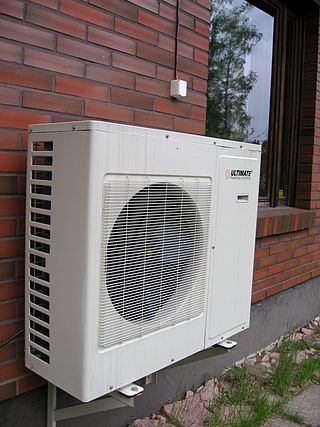
Negawatt power is investment to reduce electricity consumption rather than investing to increase supply capacity. In this way investing in negawatts can be considered as an alternative to a new power station and the costs and environmental concerns can be compared.

Energy in the United Kingdom came mostly from fossil fuels in 2021. Total energy consumption in the United Kingdom was 142.0 million tonnes of oil equivalent in 2019. In 2014, the UK had an energy consumption per capita of 2.78 tonnes of oil equivalent compared to a world average of 1.92 tonnes of oil equivalent. Demand for electricity in 2014 was 34.42 GW on average coming from a total electricity generation of 335.0 TWh.
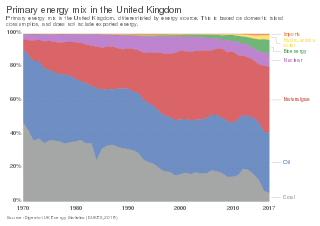
The energy policy of the United Kingdom refers to the United Kingdom's efforts towards reducing energy intensity, reducing energy poverty, and maintaining energy supply reliability. The United Kingdom has had success in this, though energy intensity remains high. There is an ambitious goal to reduce carbon dioxide emissions in future years, but it is unclear whether the programmes in place are sufficient to achieve this objective. Regarding energy self-sufficiency, UK policy does not address this issue, other than to concede historic energy security is currently ceasing to exist.
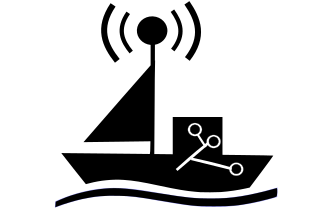
An unmanned surface vehicle, unmanned surface vessel or uncrewed surface vessel (USV), colloqually called a drone boat, drone ship or sea drone, is a boat or ship that operates on the surface of the water without a crew. USVs operate with various levels of autonomy, from remote control to fully autonomous surface vehicles (ASV).
Katy Deacon is a British engineer involved in renewable energy systems. Deacon has been noted for influencing the engineering industry.

The production of renewable energy in Scotland is a topic that came to the fore in technical, economic, and political terms during the opening years of the 21st century. The natural resource base for renewable energy is high by European, and even global standards, with the most important potential sources being wind, wave, and tide. Renewables generate almost all of Scotland's electricity, mostly from the country's wind power.
A hydrogen ship is a hydrogen fueled ship, using an electric motor that gets its electricity from a fuel cell, or hydrogen fuel in an internal combustion engine.
Marine Current Turbines Ltd (MCT), is a United Kingdom-based company which is developing tidal stream generators. It is owned by the German automation company, Siemens.
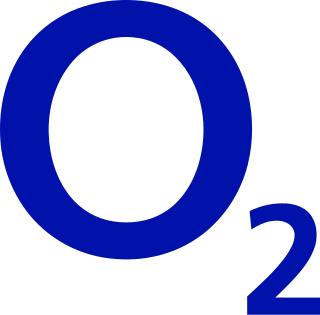
Telefonica UK Limited, trading as O2 UK (stylised as O2), is a British telecommunications services provider, headquartered in Slough, England which operates under the O2 brand. It is owned by VMED O2 UK Limited, a 50:50 joint venture between Telefónica and Liberty Global. O2 is the UK's largest mobile network operator, with 23.8 million subscribers as of May 2023.
Eco-investing or green investing, is a form of socially responsible investing where investments are made in companies that support or provide environmentally friendly products and practices. These companies encourage new technologies that support the transition from carbon dependence to more sustainable alternatives. Green finance is "any structured financial activity that has been created to ensure a better environmental outcome."
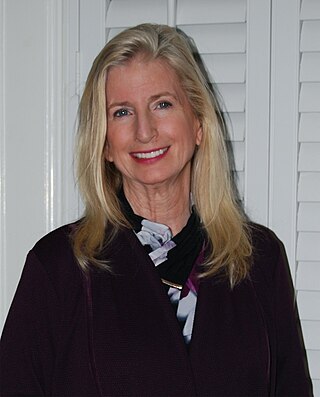
Marilyn A. Brown is a Regents' and Brook Byers Professor of Sustainable Systems in the School of Public Policy at the Georgia Institute of Technology. She joined Georgia Tech in 2006 after 22 years at Oak Ridge National Laboratory, where she held various leadership positions. Her work was cited by President Clinton as providing the scientific justification for signing the 1997 Kyoto Protocol. With Eric Hirst, she coined the term "energy efficiency gap" and pioneered research to highlight and quantify the unexploited economic potential to use energy more productively.

The Interstate Renewable Energy Council (IREC), established in 1982, is a non-profit organization working with clean energy. It is based in Latham, New York.

Maersk Line is a Danish international container shipping company and the largest operating subsidiary of Maersk, a Danish business conglomerate. Founded in 1928, it is the world's second largest container shipping company by both fleet size and cargo capacity, offering regular services to 374 ports in 116 countries. In 2019, it employed 83,625 people where 18,398 of which are vessel crew and the other 65,227 are processing and operations personnel in offices and ports. Maersk Line operates over 708 vessels and has a total capacity of about 4.1 million TEU.
First Flight wind farm was a late 2000s proposed offshore wind farm in the Irish Sea, southeast of the southern coast of County Down, Northern Ireland.
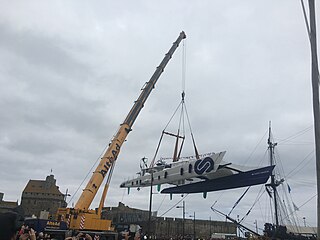
Energy Observer, launched in April 2017, is the first vessel autonomous in energy thanks to a mix of renewable energy and renewable hydrogen produced on board. Developed in collaboration with engineers from the CEA-LITEN the boat will test and prove the efficiency of a full production chain that relies on the coupling of different renewable energies. Following its launch, the boat left in the Spring 2017 for a world tour lasting 6 years in order to optimize its technologies and lead an expedition that will serve durable solutions for energy transition. The boat was nominated first French ambassador of the Sustainable Development Goals by the French Ministry for an ecological and solidary transition.
Moorside clean energy hub is a proposal put forward on 30 June 2020 by two consortia, one led by EDF and the other by Rolls-Royce, to create an energy hub that would produce electricity and hydrogen through the use of nuclear power and renewable energy.
References
- ↑ "Woman's Hour 14min into programme". BBC Radio 4. Retrieved 10 December 2020.
- 1 2 "3rd Annual Shipping and CRS Forum". Capital Link Forum. Retrieved 22 November 2020.
- 1 2 3 "Diane Gilpin". Safety4Sea. Retrieved 21 November 2020.
- ↑ Geoghegan, John J. "Designers Set Sail, Turning to Wind to Help Power Cargo Ships". New York Times. Retrieved 22 November 2020.
- 1 2 "Woman's Hour Power List 2020: The List". BBC Radio4. Retrieved 16 November 2020.
- ↑ "Flagships for the Future". Smart Green Shipping. Retrieved 21 November 2020.
- ↑ "Clean maritime revolution starts voyage". UK Government.
- ↑ "Ship Efficiency Awards 2014 Winners Announced". The Maritime Executive. Retrieved 22 November 2020.